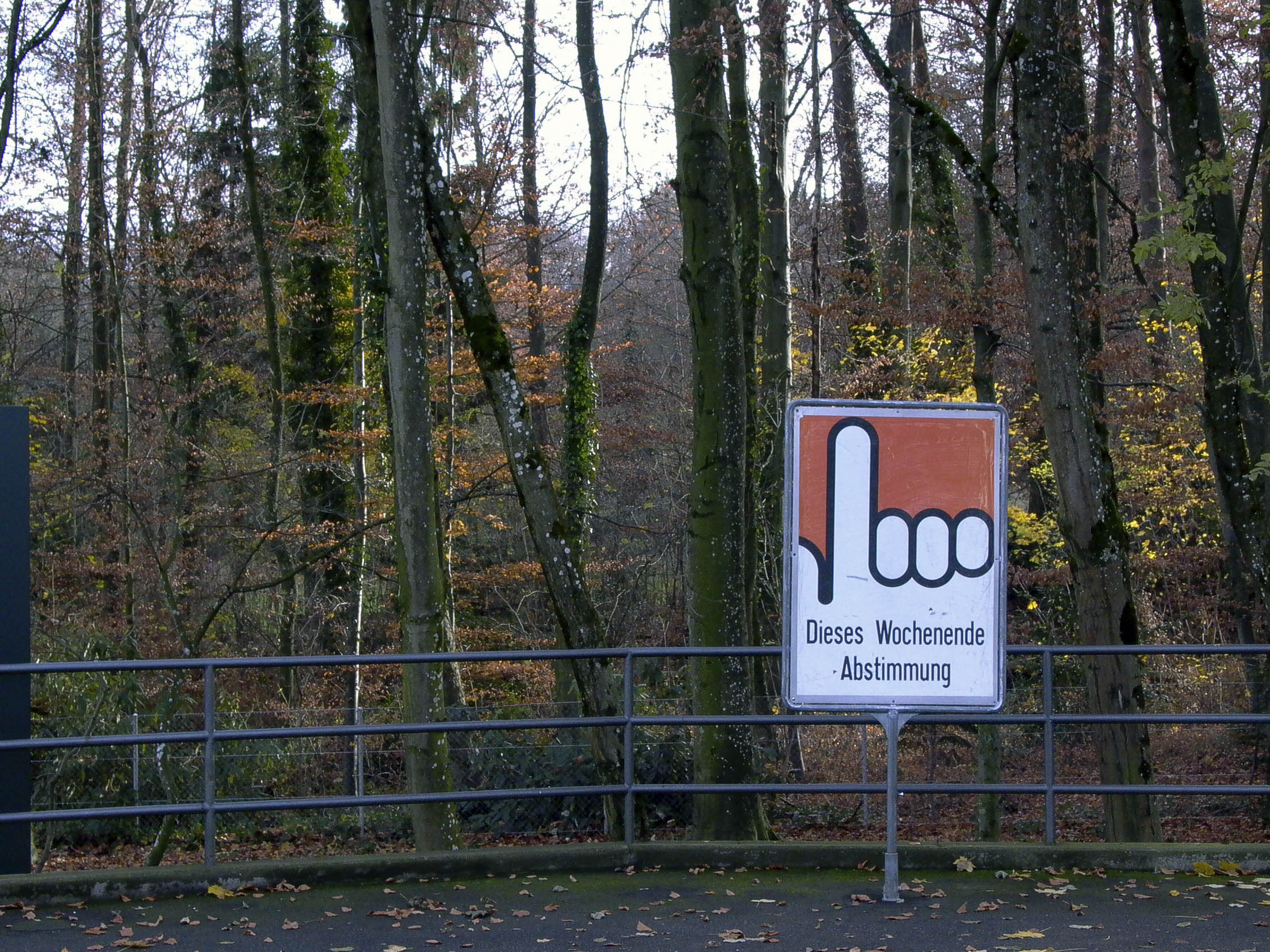Voters accept restrictions on fat cat salaries

Swiss voters have granted shareholders a veto right over salaries of top managers and board members of listed companies. Results show the controversial initiative was widely accepted.
With more than two out of three voters approving the constitutional amendment, and every canton, it was a triumph for the backers of the so-called Minder initiative.
It was launched nearly seven years ago, the brainchild of a businessman-turned-politician, Thomas Minder. The self-styled anti-establishment champion wanted to rein in excessive payments to top managers by giving shareholders a greater say on remuneration issues.
The outcome was considered a foregone conclusion after opinion polls showed strong public support for the initiative. A February survey gave supporters of the proposal an unprecedented 40 per cent lead, prompting opponents to scale back their public campaign two weeks before voting day.
News that the outgoing board chairman of drug maker Novartis, Daniel Vasella, was due to receive a leaving package worth CHF72 million ($77 million) had notably fired up public sentiment against “fat cat” bosses. The public outrage over the payout forced him to forego the financial benefit.
Parliament, which had put forward its watered-down version of the initiative, will now have to draft a law giving shareholders the right to hold a binding vote on all compensation for company executives and directors.
The law will also ban “golden hellos” and “goodbyes” – one-off bonuses that senior managers sometimes receive when joining or leaving a company. It will promote as well greater corporate transparency, for example by requiring that all loans to executives be declared to shareholders.
In Europe, some other countries such as the Netherlands and Denmark already have similar legislation allowing shareholders at least a binding vote on executive compensation. But in the US and Britain such “say-on-pay” votes are non-binding.
The Swiss decision comes on the heels of a European Union decision this week to cap bankers’ bonuses at one year’s base salary except in the case of overwhelming shareholder approval.
Urban sprawl
A 20-year freeze on development areas in a bid to stop urban sprawl, also on the ballot sheet, was accepted by a two-third majority.
Parliament last year decided to tighten the law on land use, but opponents led by the influential Association of Small and Medium-Sized Entreprises and backed by the rightwing People’s Party and the centre-right Radicals, gathered enough signatures to force a vote.
They were concerned by additional levies, rezoning issues and feared that the cantons would lose their autonomy to the federal authorities. However, environmentalists warned urban sprawl is damaging the countryside.
The campaign was particularly heated in canton Valais, a region known for its holiday resorts and still smarting from a nationwide
vote last year limiting secondary residences. Four out five voters in the canton rejected the revised legislation.
An estimated 5.1 million citizens are eligible to take part in the vote – the first set in a series of up to four ballots this year.
Up to 162,000 of them, mostly members of the Swiss abroad community, can have a say online as part of an ongoing trial with e-voting.
Apart from the nationwide ballot, votes on a variety of issues are scheduled in many cantons and at a local level on the same day.
Daycare
Another constitutional amendment put to voters sought to promote the creation of child daycare facilities, boosting the chances of young mothers in the job market and improving work-life balance for families, failed to get enough voters behind it.
While a clear majority of voters nationwide were in favour of the change, enough cantons voted against it to sink the proposal. A majority of votes and cantons was required for the amendment to pass.
Switzerland ranks behind many other countries in Europe when it comes to childcare facilities, including school meals and nurseries.
Insufficient infrastructure makes it hard for women to keep their jobs, according to supporters. They said the federal authorities must encourage cantons to provide more safeguards to families, answering their needs and society’s expectations.
However, critics argued the proposal added an additional financial burden and is an unnecessary interference by the state in family matters.
The rightwing Swiss People’s Party mounted a massive marketing campaign to try and bring down the amendment which had the support of major parties, including the centre-left Social Democrats, the Greens and the centre-right Christian Democrats, as well as the cabinet.
The Radicals, which are traditionally close to the business community, were split over the issue.

In compliance with the JTI standards
More: SWI swissinfo.ch certified by the Journalism Trust Initiative




You can find an overview of ongoing debates with our journalists here. Please join us!
If you want to start a conversation about a topic raised in this article or want to report factual errors, email us at english@swissinfo.ch.